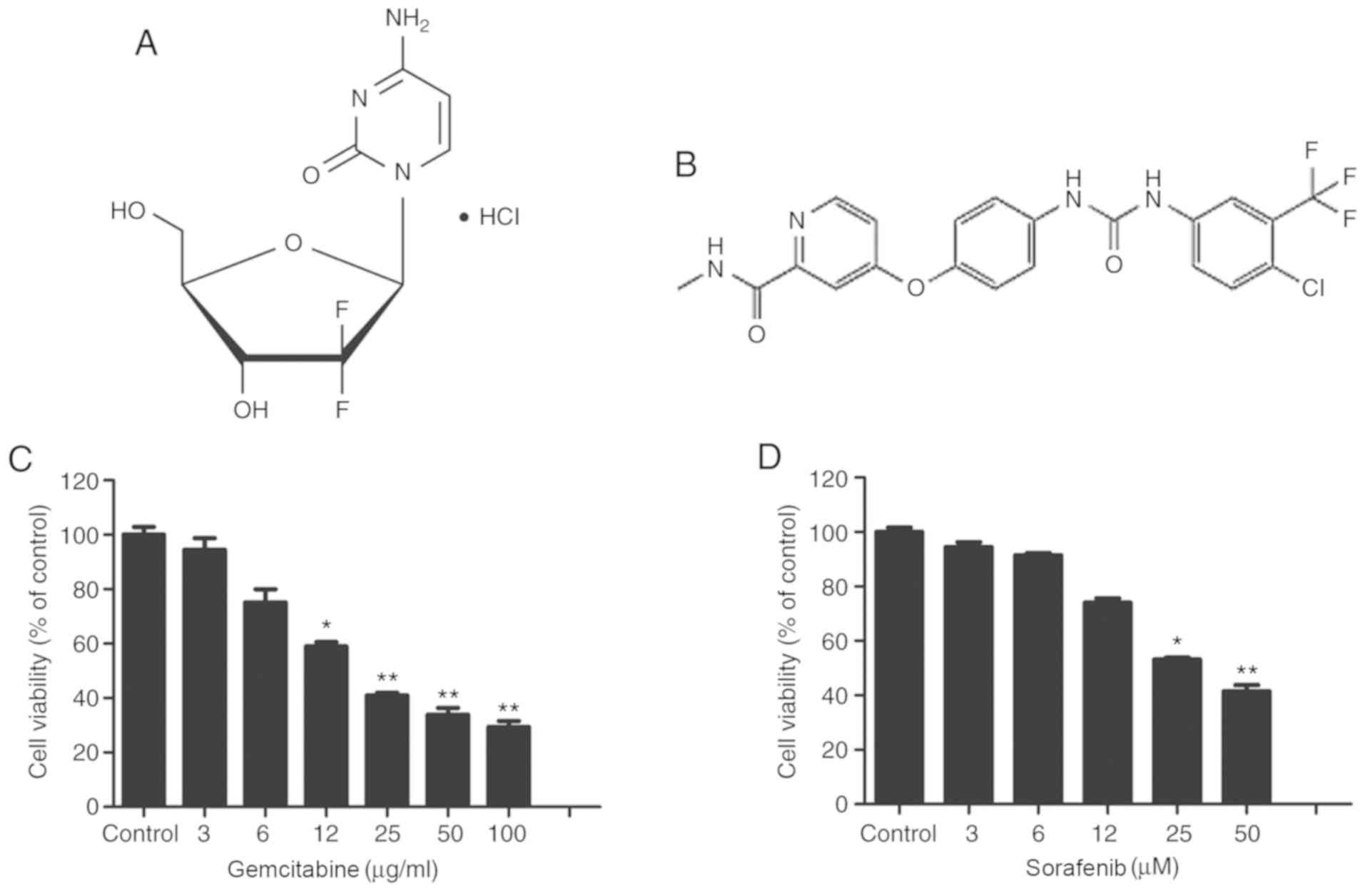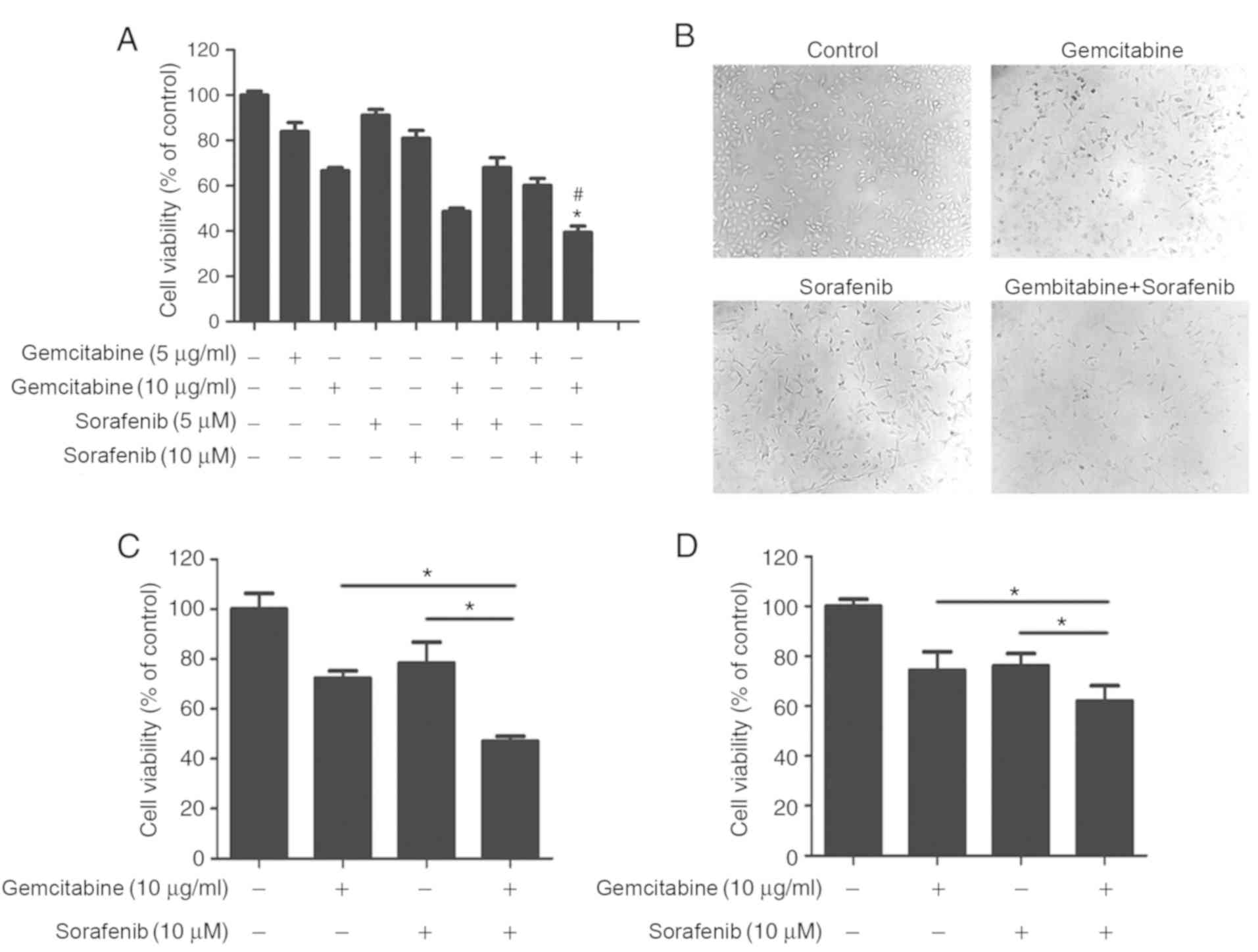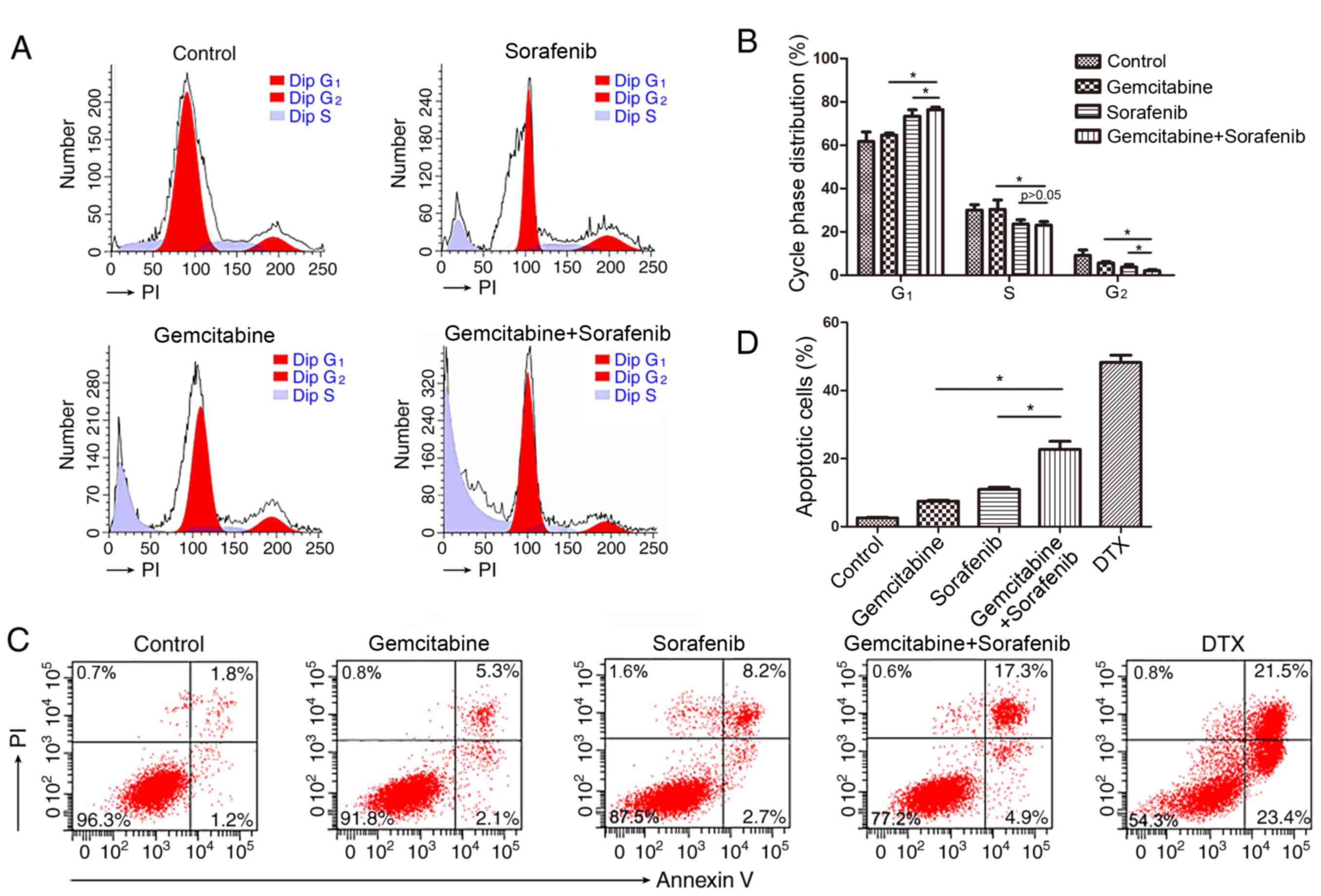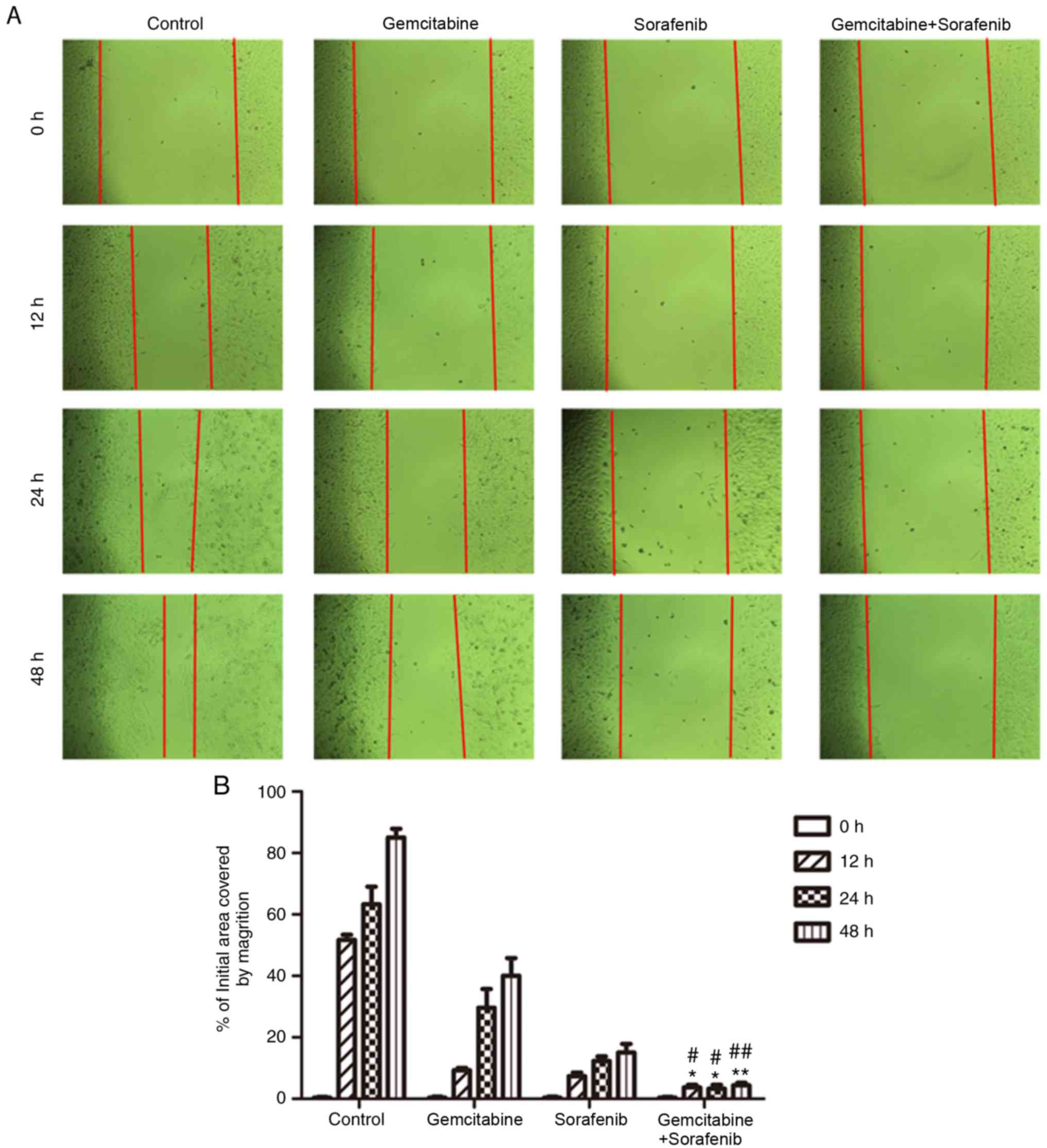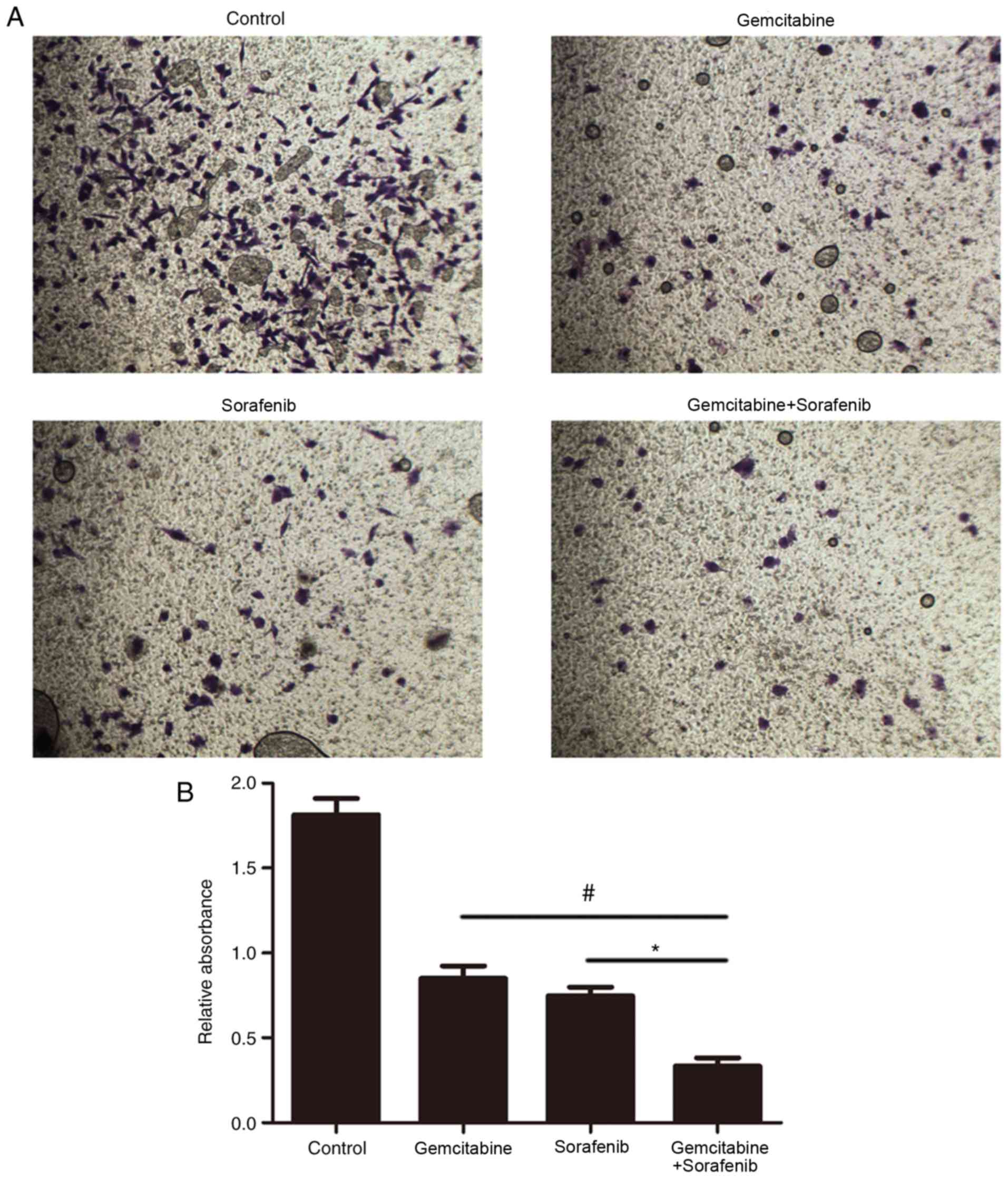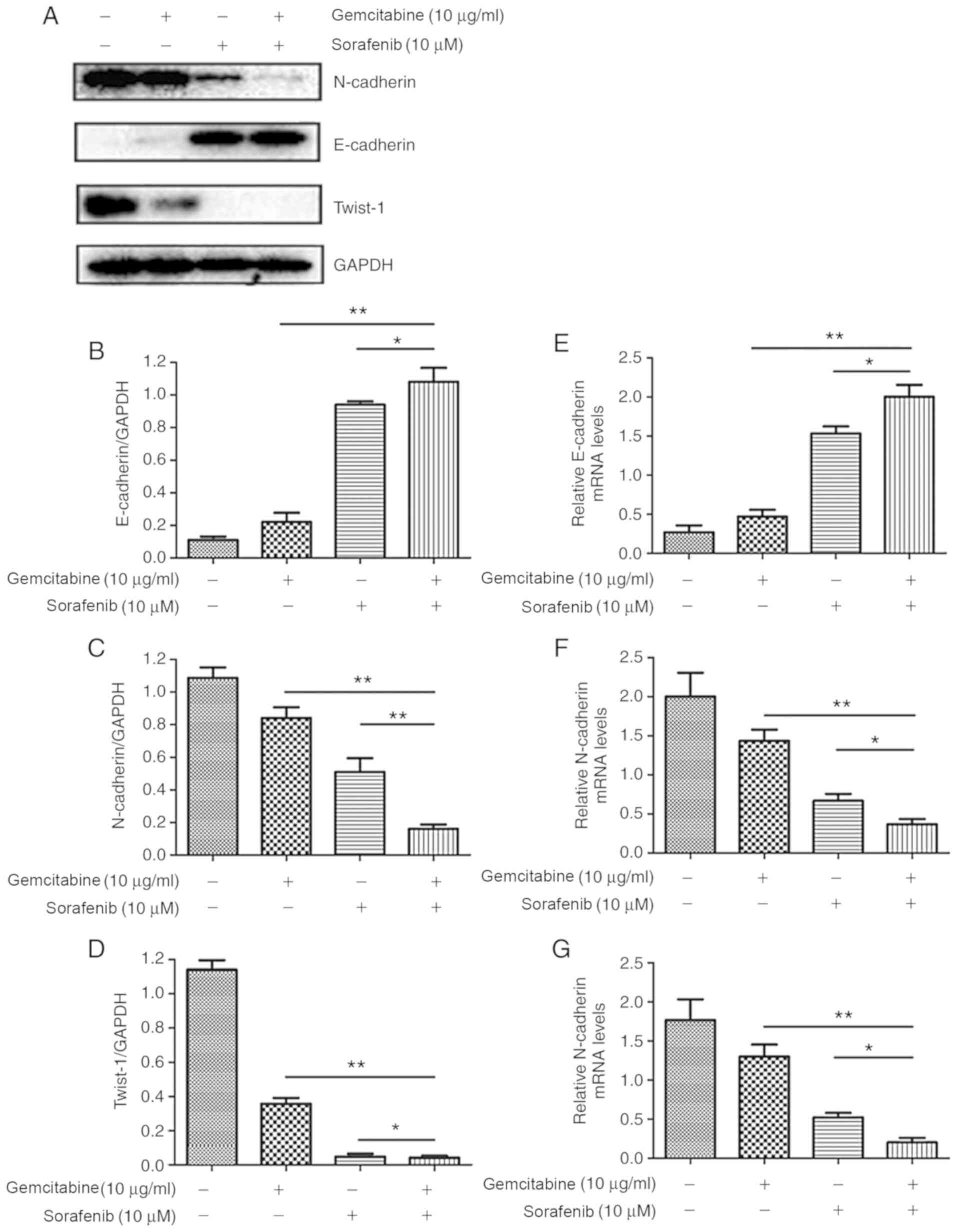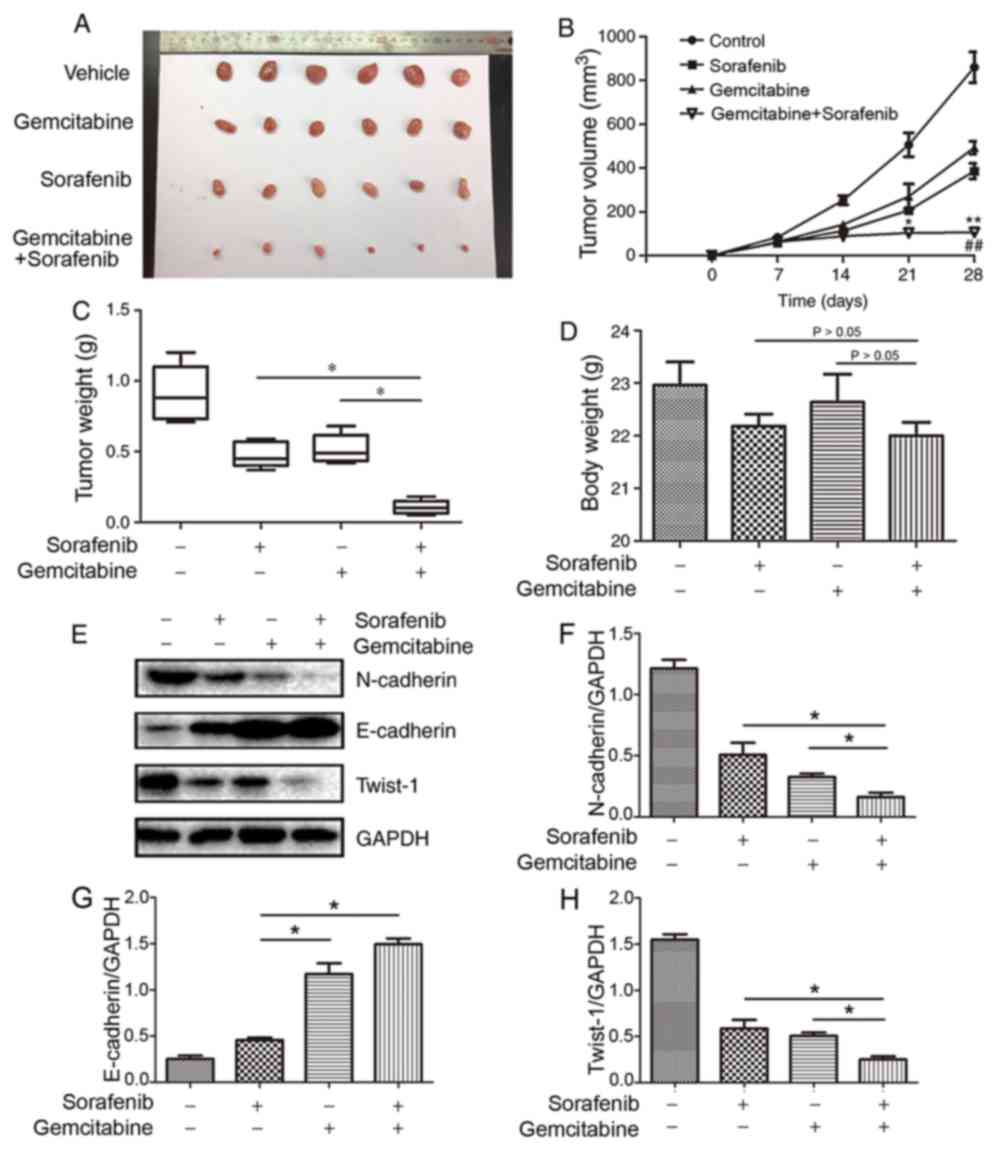|
1
|
Kobayashi K, Seike M, Zou F, Noro R, Chiba
M, Ishikawa A, Kunugi S, Kubota K and Gemma A: Prognostic
significance of NSCLC and response to EGFR-TKIs of EGFR-mutated
NSCLC based on PD-L1 expression. Anticancer Res. 38:753–762.
2018.PubMed/NCBI
|
|
2
|
Bray F, Ferlay J, Soerjomataram I, Siegel
RL, Torre LA and Jemal A: Global cancer statistics 2018: GLOBOCAN
estimates of incidence and mortality worldwide for 36 cancers in
185 countries. CA Cancer J Clin. 68:394–424. 2018. View Article : Google Scholar : PubMed/NCBI
|
|
3
|
Siegel R, Ma J, Zou Z and Jemal A: Cancer
statistics, 2014. CA Cancer J Clin. 64:9–29. 2014. View Article : Google Scholar : PubMed/NCBI
|
|
4
|
Vasconcellos VF, Marta GN, da Silva EM,
Gois AF, de Castria TB and Riera R: Cisplatin versus carboplatin in
combination with third-generation drugs for advanced non-small cell
lung cancer. Cochrane Database Syst Rev. 1:CD0092562020.PubMed/NCBI
|
|
5
|
Siegel R, Naishadham D and Jemal A: Cancer
statistics, 2013. CA Cancer J Clin. 63:11–30. 2013. View Article : Google Scholar : PubMed/NCBI
|
|
6
|
Bremnes RM, Veve R, Hirsch FR and Franklin
WA: The E-cadherin cell-cell adhesion complex and lung cancer
invasion, metastasis, and prognosis. Lung Cancer. 36:115–124. 2002.
View Article : Google Scholar : PubMed/NCBI
|
|
7
|
Qiang H, Chang Q, Xu J, Qian J, Zhang Y,
Lei Y, Han B and Chu T: New advances in antiangiogenic combination
therapeutic strategies for advanced non-small cell lung cancer. J
Cancer Res Clin Oncol. 146:631–645. 2020. View Article : Google Scholar : PubMed/NCBI
|
|
8
|
Kohutek F, Stratena M, Rosik A, Tamasova M
and Bystricky B: First-line treatment of nonsquamous NSCLC using
gemcitabine: A retrospective study of real-life practice. Lung
Cancer Manag. 5:123–130. 2016. View Article : Google Scholar : PubMed/NCBI
|
|
9
|
Hu BD, Guo J, Ye YZ, Du T, Cheng CS, Jiang
Q, Liu RN and Zhang YB: Specific inhibitor of Notch3 enhances the
sensitivity of NSCLC cells to gemcitabine. Onco Rep. 40:155–164.
2018.
|
|
10
|
Komiyama S, Kugimiya T, Takeya C,
Takahashi R and Kubushiro K: Platinum-resistant recurrent ovarian
cancer with long survival on bevacizumab and gemcitabine. J Obstet
Gynaecol Res. 44:1330–1334. 2018. View Article : Google Scholar : PubMed/NCBI
|
|
11
|
Kim JH, Lee SC, Oh SY, Song SY, Lee N, Nam
EM, Lee S, Hwang IG, Lee HR, Lee KT, et al: Attenuated FOLFIRINOX
in the salvage treatment of gemcitabine-refractory advanced
pancreatic cancer: A phase II study. Cancer Commun (Lond).
38:322018. View Article : Google Scholar : PubMed/NCBI
|
|
12
|
Yalçin S, Erkan M, Ünsoy G, Parsian M,
Kleeff J and Gündüz U: Effect of gemcitabine and retinoic acid
loaded PAMAM dendrimer-coated magnetic nanoparticles on pancreatic
cancer and stellate cell lines. Biomed Pharmacother. 68:737–743.
2014. View Article : Google Scholar : PubMed/NCBI
|
|
13
|
Xu B and Tao ZZ: Piceatannol enhances the
antitumor efficacy of gemcitabine in human A549 non-small cell lung
cancer cells. Onco Res. 22:213–217. 2014. View Article : Google Scholar
|
|
14
|
Yoshitomi S, Taira N, Doihara H, Mizoo T,
Nogami T, Iwamoto T, Motoki T, Shien T, Ogasawara Y, Matsuoka J, et
al: A phase 1, dose-finding and pharmacokinetic study of
gemcitabine with nab-paclitaxel in patients with metastatic breast
cancer. Cancer Chemother Pharmacol. 78:289–294. 2016. View Article : Google Scholar : PubMed/NCBI
|
|
15
|
Sakurai R, Tomizawa Y, Yoshii A, Miura Y,
Tsurumaki H, Kaira K, Sunaga N, Kawashima O, Hisada T, Yamada M and
Saito R: A phase II study of biweekly gemcitabine and carboplatin
in completely resected stage IB-IIIA non-small cell lung cancer.
Cancer Chemother Pharmacol. 81:103–109. 2018. View Article : Google Scholar : PubMed/NCBI
|
|
16
|
Zhang J, Gold KA and Kim E: Sorafenib in
non-small cell lung cancer. Expert OpinInvestig Drugs.
21:1417–1426. 2012. View Article : Google Scholar
|
|
17
|
Zhang J, Chen YL, Ji G, Fang W, Gao Z, Liu
Y, Wang J, Ding X and Gao F: Sorafenib inhibits
epithelial-mesenchymal transition through an epigenetic-based
mechanism in human lung epithelial cells. PLoS One. 8:e649542013.
View Article : Google Scholar : PubMed/NCBI
|
|
18
|
Takezawa K, Okamoto I, Yonesaka K,
Hatashita E, Yamada Y, Fukuoka M and Nakagawa K: Sorafenib inhibits
non-small cell lung cancer cell growth by targeting B-RAF in KRAS
wild-type cells and C-RAF in KRAS mutant cells. Cancer Res.
69:6515–6521. 2009. View Article : Google Scholar : PubMed/NCBI
|
|
19
|
Ngamphaiboon N, Dy GK, Ma WW, Zhao Y,
Reungwetwattana T, DePaolo D, Ding Y, Brady W, Fetterly G and Adjei
AA: A phase I study of the histone deacetylase (HDAC) inhibitor
entinostat, in combination with sorafenib in patients with advanced
solid tumors. Invest New Drugs. 33:225–232. 2015. View Article : Google Scholar : PubMed/NCBI
|
|
20
|
Jean GW, Mani RM, Jaffry A and Khan SA:
Toxic effects of sorafenib in patients with differentiated thyroid
carcinoma compared with other cancers. JAMA Oncol. 2:529–534. 2016.
View Article : Google Scholar : PubMed/NCBI
|
|
21
|
Pignochino Y, Dell'Aglio C, Basiricò M,
Capozzi F, Soster M, Marchiò S, Bruno S, Gammaitoni L, Sangiolo D,
Torchiaro E, et al: The combination of sorafenib and everolimus
abrogates mTORC1 and mTORC2 upregulation in osteosarcoma
preclinical models. Clin Cancer Res. 19:2117–2131. 2013. View Article : Google Scholar : PubMed/NCBI
|
|
22
|
Pal HC, Baxter RD, Hunt KM, Agarwal J,
Elmets CA, Athar M and Afaq F: Fisetin, a phytochemical,
potentiates sorafenib-induced apoptosis and abrogates tumor growth
in athymic nude mice implanted with BRAF-mutated melanoma cells.
Oncotarget. 6:28296–28311. 2015. View Article : Google Scholar : PubMed/NCBI
|
|
23
|
Swarnakar NK, Thanki K and Jain S:
Enhanced antitumor efficacy and counterfeited cardiotoxicity of
combinatorial oral therapy using Doxorubicin- and Coenzyme
Q10-liquid crystalline nanoparticles in comparison with intravenous
Adriamycin. Nanomedicine. 10:1231–1241. 2014. View Article : Google Scholar : PubMed/NCBI
|
|
24
|
Das M, Jain R, Agrawal AK, Thanki K and
Jain S: Macromolecular bipill of gemcitabine and methotrexate
facilitates tumor-specific dual drug therapy with higher
benefit-to-risk ratio. Bioconjug Chem. 25:501–509. 2014. View Article : Google Scholar : PubMed/NCBI
|
|
25
|
Gridelli C, Morgillo F, Favaretto A, de
Marinis F, Chella A, Cerea G, Mattioli R, Tortora G, Rossi A,
Fasano M, et al: Sorafenib in combination with erlotinib or with
gemcitabine in elderly patients with advanced non-small-cell lung
cancer: A randomized phase II study. Ann Oncol. 22:1528–1534. 2011.
View Article : Google Scholar : PubMed/NCBI
|
|
26
|
Jiang S, Fan J, Wang Q, Ju D, Feng M, Li
J, Guan ZB, An D, Wang X and Ye L: Diosgenin induces ROS-dependent
autophagy and cytotoxicity via mTOR signaling pathway in chronic
myeloid leukemia cells. Phytomedicine. 23:243–252. 2016. View Article : Google Scholar : PubMed/NCBI
|
|
27
|
Livak KJ and Schmittgen TD: Analysis of
relative gene expression data using real-time quantitative PCR and
the 2(-Delta Delta C(T)) method. Methods. 25:402–408. 2001.
View Article : Google Scholar : PubMed/NCBI
|
|
28
|
Hamed SS, Straubinger RM and Jusko WJ:
Pharmacodynamic modeling of cell cycle and apoptotic effects of
gemcitabine on pancreatic adenocarcinoma cells. Cancer Chemother
Pharmacol. 72:553–563. 2013. View Article : Google Scholar : PubMed/NCBI
|
|
29
|
Xia Q, Zhang X, Chen Q, Chen X, Teng J,
Wang C, Li M and Fan L: Down-regulation of tissue factor inhibits
invasion and metastasis of non-small cell lung cancer. J Cancer.
11:1195–1202. 2020. View Article : Google Scholar : PubMed/NCBI
|
|
30
|
Morgensztern D, Ng SH, Gao F and Govindan
R: Trends in stage distribution for patients with non-small cell
lung cancer: A national cancer database survey. J Thorac Oncol.
5:29–33. 2010. View Article : Google Scholar : PubMed/NCBI
|
|
31
|
Jiang S, Wang Q, Feng M, Li J, Guan Z, An
D, Dong M, Peng Y, Kuerban K and Ye L: C2-ceramide enhances
sorafenib-induced caspase-dependent apoptosis via PI3K/AKT/mTOR and
Erk signaling pathways in HCC cells. Appl Microbiol Biotechnol.
101:1535–1546. 2017. View Article : Google Scholar : PubMed/NCBI
|
|
32
|
Petrelli A and Giordano S: From single- to
multi-target drugs in cancer therapy: When aspecificity becomes an
advantage. Curr Med Chem. 15:422–432. 2008. View Article : Google Scholar : PubMed/NCBI
|
|
33
|
Li J, Pan YY and Zhang Y: Synergistic
interaction between sorafenib and gemcitabine in EGFR-TKI-sensitive
and EGFR-TKI-resistant human lung cancer cell lines. Oncol Lett.
5:440–446. 2013. View Article : Google Scholar : PubMed/NCBI
|
|
34
|
Liao ZJ, Guo YH, Zhao Z, Yao JT, Xu R and
Nan KJ: Gemcitabine inhibits the micrometastasis of non-small cell
lung cancer by targeting the EpCAM-positive circulating tumor cells
via the HGF/cMET pathway. Int J Oncol. 45:651–658. 2014. View Article : Google Scholar : PubMed/NCBI
|
|
35
|
Cervello M, Bachvarov D, Lampiasi N,
Cusimano A, Azzolina A, McCubrey JA and Montalto G: Molecular
mechanisms of sorafenib action in liver cancer cells. Cell Cycle.
11:2843–2855. 2012. View Article : Google Scholar : PubMed/NCBI
|
|
36
|
Pasqualetti G, Ricciardi S, Mey V, Del
Tacca M and Danesi R: Synergistic cytotoxicity, inhibition of
signal transduction pathways and pharmacogenetics of sorafenib and
gemcitabine in human NSCLC cell lines. Lung Cancer. 74:197–205.
2011. View Article : Google Scholar : PubMed/NCBI
|
|
37
|
Li J, Wang S, Su ZF and Yuan Y:
Synergistic effects of sorafenib in combination with gemcitabine or
pemetrexed in lung cancer cell lines with K-ras mutations. Contemp
Oncol (Pozn). 20:33–38. 2016.PubMed/NCBI
|
|
38
|
Guo R, Hu T, Liu Y, He Y and Cao Y: Long
non-coding RNA PRNCR1 modulates non-small cell lung cancer cells
proliferation, apoptosis, migration, invasion and EMT through
PRNCR1/miR-126-5p/MTDH axis. Biosci Rep BSR20193153. 2020.
|
|
39
|
Lee MY, Chou CY, Tang MJ and Shen MR:
Epithelial- mesenchymal transition in cervical cancer: Correlation
with tumor progression, epidermal growth factor receptor
overexpression, and snail up-regulation. Clin Cancer Res.
14:4743–4750. 2008. View Article : Google Scholar : PubMed/NCBI
|
|
40
|
Garg M: Epithelial, mesenchymal and hybrid
epithelial/mesenchymal phenotypes and their clinical relevance in
cancer metastasis. Expert Rev Mol Med. 19:e32017. View Article : Google Scholar : PubMed/NCBI
|
|
41
|
He R, Zhang FH and Shen N: LncRNA
FEZF1-AS1 enhances epithelial-mesenchymal transition (EMT) through
suppressing E-cadherin and regulating WNT pathway in non-small cell
lung cancer (NSCLC). Biomed Pharmacother. 95:331–338. 2017.
View Article : Google Scholar : PubMed/NCBI
|
|
42
|
Tsai CH, Lin LT, Wang CY, Chiu YW, Chou
YT, Chiu SJ, Wang HE, Liu RS, Wu CY, Chan PC, et al:
Over-expression of cofilin-1 suppressed growth and invasion of
cancer cells is associated with up-regulation of let-7 microRNA.
Biochim Biophys Acta. 1852:851–861. 2015. View Article : Google Scholar : PubMed/NCBI
|
|
43
|
Liu X, Li C, Yang Y, Liu X, Li R, Zhang M,
Yin Y and Qu Y: Synaptotagmin 7 in twist-related protein 1-mediated
epithelial-Mesenchymal transition of non-small cell lung cancer.
EBioMedicine. 46:42–53. 2019. View Article : Google Scholar : PubMed/NCBI
|















